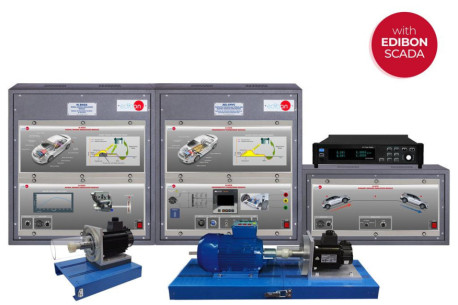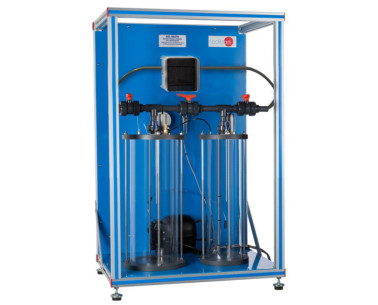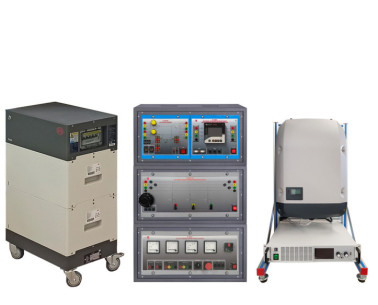- Início
- Produtos
- 1.- FÍSICA
- PROGRAMAS ACADÊMICOS
- EDUCAÇÃO TÉCNICA SUPERIOR
- ENGENHARIA DE ALIMENTOS
- ENGENHARIA TOPOGRAFÍCIA
- GEOLOGIA
- ENGENHARIA FLORESTAL
- ENGENHARIA AMBIENTAL
- ENGENHARIA ECOLÓGICA
- ENGENHARIA TÊXTIL
- ENGENHARIA PARA INDÚSTRIAS AGRÍCOLAS
- ENGENHARIA MECÂNICA
- QUÍMICA
- ENGENHEIRO QUÍMICA
- ENGENHARIA DE PROCESSOS
- ENGENHARIA GEOLÓGICA, MINERAÇÃO E PETRÓLEO
- CENTRO DE FORMAÇÃO DE PETRÓLEO
- ENGENHARIA NAVAL
- ENGENHARIA AGRÍCOLA
- ENGENHARIA ELETRÔNICA
- ARQUITETURA
- CIÊNCIA DA COMPUTAÇÃO E ENGENHARIA
- ENGENHARIA NUCLEAR
- ENGENHARIA AUTOMÁTICA
- ENGENHARIA ENERGÉTICA
- CENTRO DE FORMAÇÃO DE ENERGIA
- ENGENHARIA ELÉTRICA
- ENGENHARIA DE SISTEMAS
- ENGENHARIA AERONÁUTICA
- ENGENHARIA DO OCEANO E CIÊNCIAS MARINHAS
- FÍSICA
- ENGENHARIA INDUSTRIAL
- CENTRO INTERNACIONAL DE FORMAÇÃO TÉCNICA, DESENVOLVIMENTO E INVESTIGAÇÃO
- ENGENHARIA DE MATERIAIS
- ENGENHARIA METALÚRGICA
- ENGENHARIA CIVIL
- ENGENHARIA DE TELECOMUNICAÇÃO
- ENGENHARIA TÉRMICA
- ESCOLAS TÉCNICAS
- ELETRÔNICA
- COMUNICAÇÕES
- ELETRICIDADE
- CIÊNCIA DA COMPUTAÇÃO E ENGENHARIA
- TECNOLOGIA AUTOMOTIVA
- ENGENHARIA CIVIL
- MECÂNICA E FABRICAÇÃO
- MECÂNICA E METAL
- MECÂNICA DE FLUÍDOS
- REFRIGERAÇÃO E AR CONDICIONADO
- QUÍMICA INDUSTRIAL
- QUÍMICA
- TECNOLOGIA DE ALIMENTOS
- AGRICULTURA
- INDÚSTRIA AGRÍCOLA
- MANUTENÇÃO
- MARÍTIMO E PESCA
- MANUTENÇÃO AERONÁUTICA
- INSTRUMENTAÇÃO E CONTROLE
- MEIO AMBIENTE
- TECNOLOGIA
- TECNOLOGIA DA CONSTRUÇÃO
- TECNOLOGIA ELETROMECÂNICA
- TECNOLOGIA DE DESIGN ESTRUTURAL
- TECNOLOGIA DE PRODUÇÃO INDUSTRIAL
- TECNOLOGIA DA INFORMAÇÃO
- CONTROLE DE QUALIDADE
- TECNOLOGIA DE SISTEMAS DE ENERGIA
- TECNOLOGIA MINERAL E PETROLÍFERA
- TECNOLOGIA DE GÁS NATURAL
- ENERGIAS RENOVÁVEIS
- TECNOLOGIA DE TELECOMUNICAÇÕES
- TECNOLOGIA MECÂNICA
- TECNOLOGIA EÓLICA
- TECNOLOGIA NUCLEAR
- TECNOLOGIA DE CONTROLE DE PROCESSOS
- TECNOLOGIA DE SERVIÇOS GERAIS
- TECNOLOGIA DE LABORATÓRIO
- AUTOMAÇÃO E MECATRÔNICA
- TRANSPORTE E LOGÍSTICA
- EDUCAÇÃO TÉCNICA SUPERIOR
- 2.- ELETRÔNICA
- 3.- COMUNICAÇÕES
- 4.- ELETRICIDADE
- 5.- ENERGIA
- 5.1.- SMART GRIDS E SISTEMAS DE POTÊNCIA
- 5.2.- MICRO-REDES
- 5.3.- ENERGIAS RENOVÁVEIS
- 5.3.1.- ENERGIA SOLAR FOTOVOLTAICA
- 5.3.2.- ENERGIA SOLAR TÉRMICA
- 5.3.3.- ENERGIA EÓLICA
- 5.3.4.- ENERGIA MARINHA
- 5.3.5.- ENERGIA GEOTÉRMICA
- 5.3.6.- ENERGIA HIDRÁULICA
- 5.3.7.- BIOCOMBUSTÍVEIS
- 5.3.8.- SISTEMAS DE ARMAZENAMENTO
- 5.3.9.- CÉLULAS A COMBUSTÍVEL DE HIDROGÊNIO
- 5.3.10.- TURBINAS A VAPOR E CICLOS ORGÂNICOS RANKINE
- 5.3.11.- OUTROS SISTEMAS NÃO CONVENCIONAIS
- 5.4.- ENERGIAS CONVENCIONAIS
- 5.5.- ARMAZENAMENTO DE ENERGIA
- 5.6.- ALTA TENSÃO E SISTEMAS ELÉTRICOS DE PROTEÇÃO
- 5.7.- INSTALAÇÕES E MANUTENÇÃO
- 6.- MECATRÔNICA E AUTOMAÇÃO
- 7.- MECÂNICA
- 8.- MECÂNICA DE FLUIDOS
- 9.- TERMODINÂMICA E TERMOTÉCNICA
- 9.1.- FUNDAMENTOS E CONCEITOS BÁSICOS DE TERMODINÂMICA
- 9.2.- VENTILAÇÃO, CALEFAÇÃO, AR CONDICIONADO E ÁGUA QUENTE SANITÁRIA
- 9.3.- BOMBAS DE CALOR
- 9.4.- REFRIGERAÇÃO
- 9.5.- SISTEMA DE TUBULAÇÃO HIDRÁULICA TÉRMICA
- 9.6.- TRANSFERÊNCIA DE CALOR
- 9.7.- TROCADORES DE CALOR
- 9.8.- MÁQUINAS TÉRMICAS
- 9.9.- MOTORES DE COMBUSTÃO INTERNA
- 9.10.- INSTALAÇÕES E MANUTENÇÃO
- 10.- CONTROLE DE PROCESSOS
- 11.- ENGENHARIA QUÍMICA
- 11.1.- OPERAÇÕES UNITÁRIAS
- 11.1.1.- FLUIDIZAÇÃO
- 11.1.2.- EVAPORAÇÃO
- 11.1.3.- EBULIÇÃO
- 11.1.4.- DESTILAÇÃO E CRAQUEAMENTO
- 11.1.5.- EXTRAÇÃO
- 11.1.6.- DIFUSÃO
- 11.1.7.- SECAGEM E ARREFECIMENTO
- 11.1.8.- ABSORÇÃO E ADSORÇÃO
- 11.1.9.- TROCA IÔNICA E CORROSÃO
- 11.1.10.- CRISTALIZAÇÃO E PIRÓLISE
- 11.1.11.- FILTRAGEM, SEDIMENTAÇÃO E MISTURA
- 11.1.12.- TRATAMENTO DE SÓLIDOS
- 11.2.- REATORES QUÍMICOS
- 11.1.- OPERAÇÕES UNITÁRIAS
- 12.- TECNOLOGIA DE ALIMENTOS E ÁGUAS
- 13.- MEIO AMBIENTE
- 14.- ENGENHARIA BIOMÉDICA
- 14.1.- BIOMECÂNICA
- 14.1.1.- KITS DE FUNDAMENTOS DE MECÂNICA
- 14.1.2.- MÁQUINAS SIMPLES
- 14.1.3.- ESTÁTICA E DINÂMICA
- 14.1.4.- VIBRAÇÕES E OSCILAÇÕES
- 14.1.5.- TRIBOLOGIA (ATRITO, DESGASTE, LUBRIFICAÇÃO)
- 14.1.6.- MECÂNICA DE ESTRUTURAS
- 14.1.7.- FOTOELASTICIDADE E EXTENSOMETRIA
- 14.1.8.- ENSAIOS MECÂNICOS
- 14.1.9.- ENSAIOS ACÚSTICOS E TÉRMICOS
- 14.2.- ELETRÔNICA BIOMÉDICA
- 14.3.- EQUIPAMENTO BIOMÉDICO
- 14.1.- BIOMECÂNICA
- ACESSÓRIOS DE LABORATÓRIO
- PLANTAS PILOTO PERSONALIZADAS
- MÓDULOS
- EXPANSÕES
- LABORATÓRIOS
- Linhas de Negócio
- Tecnología
- Repositorio de materiales
- Sobre nós
- Notícias
- Contacte-nos
Recycling and energy storage systems
At the forefront of these issues is the need for innovative approaches that not only meet the soaring demand for raw materials but also mitigate the environmental impact of battery disposal. As EV batteries reach the end of their lifecycle, they can become a significant source of pollution if not managed correctly. Addressing these challenges requires a comprehensive and sustainable strategy focused on recycling and reusing valuable materials within a circular economy framework.

EDIBON’s commitment to circular economy in energy storage
At EDIBON, we recognize the importance of sustainable practices in energy storage and are committed to developing real-world solutions that address these global challenges. Our work focuses on integrating circular economy principles into the lifecycle of lithium-ion batteries. By emphasizing recycling and efficient resource utilization, we aim to significantly reduce waste and environmental impact while supporting the increasing demand for essential minerals.
Our circular economy approach in energy storage revolves around three key areas:
1. Battery recycling: At EDIBON, we employ cutting-edge recycling processes to recover valuable metals like lithium, cobalt, and nickel from used batteries. This not only reduces the need for raw material extraction but also prevents potentially hazardous waste from contaminating the environment. Through these recycling processes, we can recirculate precious materials back into the production cycle, helping to preserve natural resources and reduce reliance on mining.
2. Energy storage systems: Beyond recycling, energy storage systems play a critical role in sustainable energy management. As renewable energy sources like solar and wind become more prevalent, the need for efficient storage solutions grows. Our energy storage systems are designed to support renewable energy integration, helping balance supply and demand, reduce energy waste, and promote a more stable and resilient power grid.
3. Pilot Plants for real-world solutions: To bring our ideas to life, EDIBON has developed pilot plants that offer practical solutions to battery recycling and energy storage challenges. These pilot plants allow us to test and refine our technologies, ensuring that they meet both environmental and industrial standards. Our facilities demonstrate the feasibility and effectiveness of our recycling processes, providing a model that can be scaled and replicated globally.
The environmental impact of lithium-ion batteries and the path forward
The environmental impact of lithium-ion batteries goes beyond their disposal; it starts from the mining and refining of raw materials. Extracting lithium, for example, requires significant water resources, often in regions where water scarcity is already an issue. Additionally, the mining of cobalt and nickel can lead to environmental degradation and ethical concerns surrounding labor practices. By focusing on recycling and reusing these materials, we can reduce the ecological footprint of battery production and contribute to a more sustainable supply chain.
Our pilot plants at EDIBON are a testament to our commitment to this cause. They demonstrate how recycling and recovery processes can reduce the need for raw material extraction, lower greenhouse gas emissions, and prevent toxic waste from entering the environment. By converting waste into valuable resources, we help minimize the environmental impact associated with the end-of-life stage of batteries and create a circular loop within the battery production cycle.

Join us in building a greener future
As a company dedicated to innovation and sustainability, EDIBON is committed to leading the way in energy storage and battery recycling. We invite you to learn more about our efforts and witness our pilot plants in action. Together, we can create a future where energy storage solutions are not only effective but also environmentally responsible, contributing to a cleaner, greener, and more efficient world.
At EDIBON, we believe that every step toward a circular economy in energy storage is a step toward a sustainable future.
 Preferências de cookies
Preferências de cookies



